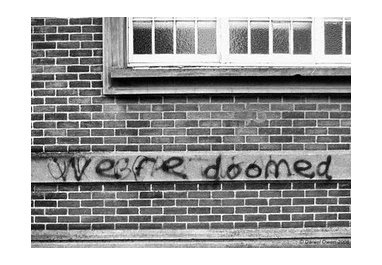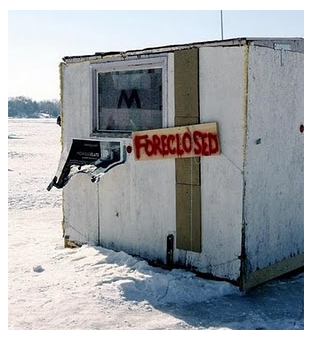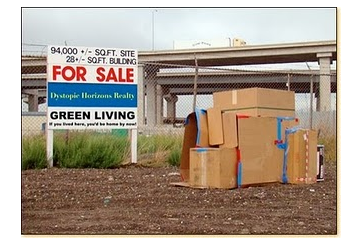
THE DIRE OUTLOOK FOR HOUSING
Courtesy of The Pragmatic Capitalist
 While the market has been focused on the Euro, China and the BP oil spill, the impending second wave of decline in the housing market has largely gone unnoticed. Recent housing numbers have mostly been bolstered by the home buyers’ tax
While the market has been focused on the Euro, China and the BP oil spill, the impending second wave of decline in the housing market has largely gone unnoticed. Recent housing numbers have mostly been bolstered by the home buyers’ tax
The point we’re getting to is that sales already appear to have declined significantly after the tax credit expiration. We quote the following in a story from the weekend Wall Street Journal that did not seem to attract wide attention:
“.Ivy Zelman, chief executive of Zelman Associates, a research firm, estimates that sales of new homes nationwide in May were down 25% to 30% from April. She warns that the weak May performance increases the chances of renewed price cuts by builders caught with too much inventory.
“Lawrence Yun, chief economist for the National association of realtors estimated that contracts signed for home resales in May were down 20% to 30% from a year earlier. He expects June and July to remain fairly weak.”
“Now that the real estate market is not benefiting from tax-credit ’steroids, we’re probably going to see a sluggish second half,’ said Ron Peltier, chief executive officer of real-estate broker Home Services of America Inc. Joblessness, or the fear of losing a job, continues to deter many potential buyers. Mr. Peltier said, and the large number of homes in foreclosure or heading that way is still putting pressure on prices in many areas. Home Services.saw its home-purchase contracts signed in May fall by nearly 20% from a year earlier, or about twice the decline it was expecting.
“A national survey of real-estate agents by Credit Suisse, released Friday, shows that traffic at homes for sale was down in May to its lowest level since the financial crisis of late 2008.”
The overwhelming anecdotal evidence is supported by the Mortgage Bankers Association (MBA) purchase application index, probably the best leading indicator of future home sales. Last week’s index was down 42% since the April 30th tax credit expiration, and at a level not seen since 1996.
All of the evidence we see indicates that the tax credit merely pushed home sales ahead, and that without it, sales and prices will resume their decline. In addition to the lack of tax credits, adjustable rate mortgage resets will soar from about now until November and then reach an even higher peak in 2011. This will put more and more mortgage holders into a position where they can longer meet their monthly payments, leading to another round of defaults and foreclosures.
Furthermore, delinquencies were climbing even before the rise in resets. According to the MBA, 1st quarter delinquencies surged to a record in every single category—fixed prime, adjustable prime, fixed subprime and adjustable subprime. At the end of the quarter fully 10% of all prime and 27% of all subprime mortgages were in delinquency.
 Another big problem for the industry is the so-called “shadow” inventory, consisting of homes that banks are holding, but haven’t foreclosed; homes that have been foreclosed, but not put on the market; and delinquent homeowners who have not yet foreclosed. We should also mention that 14.9 million homeowners owe more on their homes than the homes are worth, fully one-third of all U.S. mortgage holders. Of these, 9% are more than 20% underwater. Many of these homeowners may walk away from their homes even if they are capable of making their payments, and many already have done so. Some reputable studies have estimated that one-quarter of all defaults is caused solely by negative equity.
Another big problem for the industry is the so-called “shadow” inventory, consisting of homes that banks are holding, but haven’t foreclosed; homes that have been foreclosed, but not put on the market; and delinquent homeowners who have not yet foreclosed. We should also mention that 14.9 million homeowners owe more on their homes than the homes are worth, fully one-third of all U.S. mortgage holders. Of these, 9% are more than 20% underwater. Many of these homeowners may walk away from their homes even if they are capable of making their payments, and many already have done so. Some reputable studies have estimated that one-quarter of all defaults is caused solely by negative equity.
The prospect of declining home sales and prices has dire consequences for the economy. The further drop in prices will put even more mortgage holders underwater and exacerbate the number of subsequent defaults and foreclosures. The resulting decline in consumer net worth feeds back into lower consumer spending and sets up a negative feedback loop that works its way through the economy. Furthermore the drop in home values sharply reduces the value of the mortgages held by the banking system. Although the suspension of mark-to-market regulations means that banks won’t be forced to write down the loans, bank managements will certainly be fully aware of the potential threat to their capital, and be even more reluctant to make loans than they are today.
All in all we believe that the stock market has not discounted the potentially deteriorating housing picture that will probably hit the headlines within the next few months. In our view, therefore, the recent 1040 bottom in the S&P 500 will eventually give way and decline to significantly lower lows.
Photos courtesy of Jr. Deputy Accountant


